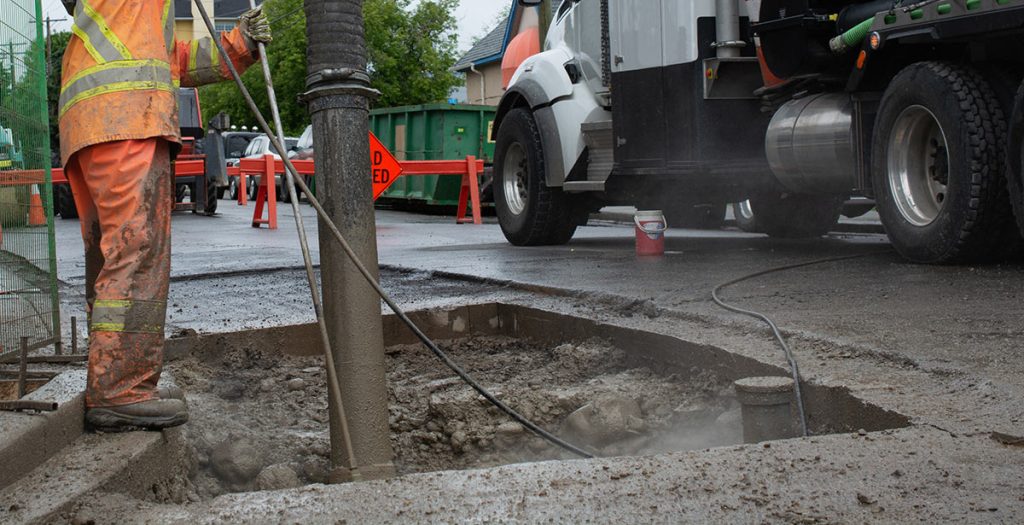Hydro-excavation, a widely used method for digging and exposing underground utilities, poses unique challenges when deployed in cold weather conditions. Cold weather introduces a myriad of complexities that demand special considerations to ensure the safety of workers, the efficiency of the process, and the integrity of equipment. One of the primary challenges stems from the fact that water used in hydro-excavation can freeze in low temperatures, leading to potential damage to equipment and hindering the excavation process. To mitigate this risk, specialized hydro-excavation units equipped with heated water tanks and water lines are essential. These units ensure that the water remains in a liquid state, preventing freezing and facilitating uninterrupted operation. Beyond equipment considerations, the safety of personnel becomes a paramount concern in cold weather. Exposure to extreme cold poses health risks, and workers must be adequately protected with insulated clothing, including thermal suits, gloves, and boots. Employers should implement regular breaks in warm areas to prevent cold-related illnesses, such as hypothermia and frostbite.

Additionally, the risk of slipping and falling on icy surfaces necessitates the use of non-slip footwear and the application of de-icing agents around the excavation site. A comprehensive safety plan, tailored specifically for cold weather conditions, should be implemented and strictly adhered to by all personnel involved in the hydro-excavation process. Furthermore, the impact of cold weather extends beyond immediate safety concerns to the performance of hydro-excavation equipment. Hydraulic systems, critical components in these units, can experience reduced efficiency and increased wear in cold temperatures. To address this, hydraulic fluids with lower viscosity and enhanced cold-weather properties should be used. Regular maintenance checks become even more crucial during cold weather, ensuring that all components are functioning optimally. Lubrication points must be inspected, and equipment operators should be trained to recognize signs of reduced performance or potential issues related to the cold environment. Cold weather also influences the behavior of soil, making it more challenging to excavate. Frozen or compacted soil requires specialized nozzles and tools designed for cold weather conditions. These tools are equipped with features such as steam injection capabilities, which help soften the soil, making it easier to extract. Adjustments to excavation techniques, such as modifying pressure settings and nozzle angles, may be necessary to account for the altered soil properties in cold weather.
In addition to these technical considerations, project timelines may be affected by cold weather conditions. Delays can occur due to the need for additional safety measures, equipment adjustments, or interruptions caused by extreme weather events. Project managers must factor in these potential delays when planning hydro-excavation projects in cold climates, allowing for flexibility in timelines and resource allocation. In conclusion, hydro excavation contractor in Green Bay in cold weather demands a comprehensive and specialized approach. From equipment modifications to enhanced safety measures and adjusted excavation techniques, every aspect of the process requires careful consideration to ensure successful and safe operations in challenging winter conditions. The integration of these special considerations not only protects the well-being of workers but also ensures the efficiency and effectiveness of hydro-excavation projects in cold weather environments.
